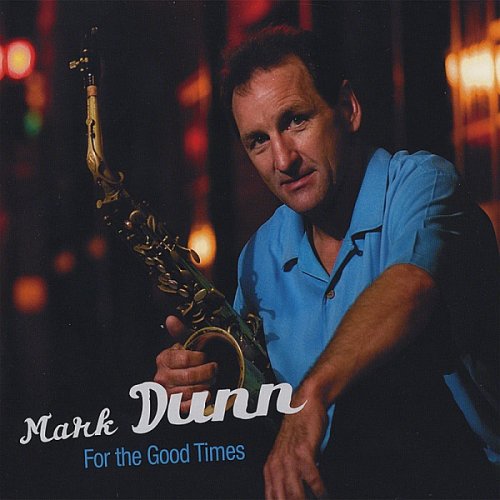Chuck Jackson - The Best Of: 20th Century Masters (2004)
- 04 Nov, 20:06
- change text size:
Facebook
Twitter
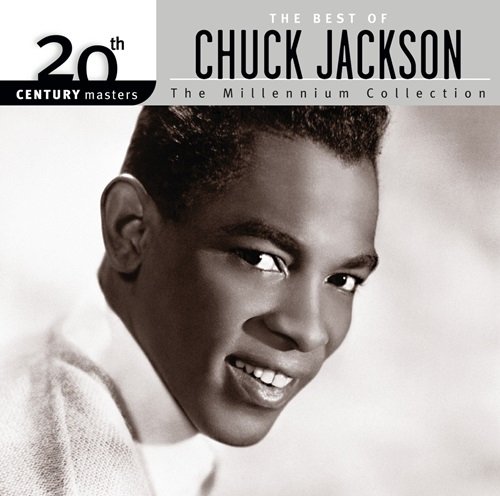
Artist: Chuck Jackson
Title: The Best Of: 20th Century Masters
Year Of Release: 2004
Label: UMG Recordings
Genre: R&B, Soul, Funk
Quality: Flac (tracks)
Total Time: 36:09
Total Size: 215 Mb
WebSite: Album Preview
Tracklist:Title: The Best Of: 20th Century Masters
Year Of Release: 2004
Label: UMG Recordings
Genre: R&B, Soul, Funk
Quality: Flac (tracks)
Total Time: 36:09
Total Size: 215 Mb
WebSite: Album Preview
01. I Don't Want To Cry 2:17
02. I Wake Up Crying 2:17
03. Any Day Now (My Wild Beautiful Bird) 3:21
04. I Keep Forgetting 2:41
05. Tell Him I'm Not Home 2:37
06. Any Other Way 2:26
07. Hand It Over 2:22
08. I Just Don't Know What To Do With Myself 2:50
09. Something You Got 2:52
10. Are You Lonely For Me Baby 3:21
11. I'm Needing You, Wanting You 3:41
12. I Wanna Give You Some Love 5:24
Singer Chuck Jackson was a major soul star in the 1960s, placing 15 singles in the R&B Top 40 over the course of the decade. His two biggest hits, 1961's "I Don't Want to Cry" and 1962's "Any Day Now," were among the best and most indelible examples of smooth pop-soul of their day, and his Wand Records recordings would make him a favorite of vintage R&B loyalists. Jackson's voice was rich, and his phrasing was polished and expressive, capable of expressing heartache with clarity and just enough grit to give his performances a force and maturity that matched his best material. He was also one of the first artists to take Burt Bacharach's songs to a significant audience, and "I Wake Up Crying," "The Breaking Point," and "I Just Don't Know What to Do with Myself" confirm he was one of the great tunesmith's most savvy interpreters. In 1967, Jackson left Wand for Motown Records, a seemingly wise move that unexpectedly stalled his career, but he remained popular as a live attraction, and latter-day LPs like I'll Take Care of You (with Cissy Houston) and 1998's I'll Never Get Over You demonstrated he never lost his way with a great song.
Chuck Jackson was born in Winston-Salem, North Carolina on July 22, 1937. His father left the family when he was a child, and his mother relocated to Pittsburgh, Pennsylvania in search of work while Chuck was sent to live with his grandmother in Latta, South Carolina. He began singing at a young age; he appeared on a gospel radio show when he was six, and at 11, he became the lead vocalist in a choir, winning a statewide competition. By the time he was 14, he had moved to Pittsburgh to be with his family and started sneaking out of the house to check out jazz clubs. At 15, he joined a local doo wop group, the 5 Mellows, as well as performing and recording with a gospel group, the Ray Raspberry Gospel Singers with Doris Willingham.
After graduating high school, Jackson earned a scholarship to study music at South Carolina State College, a historically Black university, but when Civil Rights protests led to violent incidents nearby, he dropped out and returned to Pittsburgh. Jackson soon made his way back into the local music community, and in 1957 he joined the popular doo wop group the Del Vikings. At the time, however, a dispute between original members of the group led to two competing versions of the Del Vikings existing at the same time, and the group featuring Jackson was re-branded the Versatiles. While on tour with the Versatiles, Jackson struck up a friendship with R&B star Jackie Wilson, who helped Jackson launch a solo career and invited him to open some shows for him. Jackson's appearance at New York's Apollo Theater with Wilson was seen by songwriter and producer Luther Dixon; he was convinced Jackson had the talent to be a star, and arranged for him to sign a recording contract with Wand Records, an offshoot of Scepter Records.
Jackson's first single for Wand was "I Don't Want to Cry," which he co-wrote with Dixon. Released in early 1961, the song rose to number five on the R&B Singles chart, and crossed over to the pop chart, peaking at number 36. "(It Never Happens) In Real Life," the follow-up, missed the pop Top 40 but made it to number 22 R&B, and "I Wake Up Crying" topped out at number 13 R&B. Jackson's biggest moment came in 1962 -- "Any Day Now," in which a man contemplates the loneliness that awaits him when his love leaves him behind, became Jackson's biggest hit on the strength of his emphatic performance, a superb lyric by Bob Hilliard, and an unforgettable melody by Burt Bacharach. It was a number two hit on the R&B chart and cracked the Pop Top 40 at number 23. Jackson became a popular live attraction and was a regular visitor to the R&B charts though the rest of the decade, with successful duets with Doris Taylor (1964's "Beg Me") and Maxine Brown (1965's "Something You Got"). Jackson hadn't landed another crossover hit on par with "Any Day Now," and when Smokey Robinson told Jackson that Motown Records would be happy to sign him if he got out of his commitments to Wand, he made a deal and joined the Motown stable in 1967.
Jackson's first album for Motown, Chuck Jackson Arrives!, was released in 1968, and a single was drawn from the release, a remake of the Miracles' "(You Can't Let the Boy Overpower) The Man in You." The single made it to number 94 on the Pop chart without making the R&B survey, and though 1969's "Are You Lonely for Me Baby" made it to number 27 R&B, the album it appeared on, Goin' Back to Chuck Jackson, didn't fare well commercially, nor did 1970's Teardrops Keep Fallin' On My Heart. Jackson would later call moving to Motown "one of the worst mistakes I ever made in my life," and in an interview with Record Mirror said, "Motown is a sound and they have to mold talent to suit that sound … They were renowned for creating their own artists and, if you give it some thought, you’d be hard pushed to find any established artist who has joined the company and gone on to bigger things." In 1973, Jackson emerged with a new album, Through All Times, produced by Steve Barri and released by ABC Records. Two singles from the album charted -- "I Only Get This Feeling" (R&B number 35) and "I Can't Break Away" (R&B number 62) -- but ABC didn't pick up the option for a second album, and Jackson's next LP, 1975's Needing You, Wanting You, was issued by All Platinum. It would be another five years before Jackson's next album arrived, 1980's I Wanna Give You Some Love, on EMI-America.
Jackson focused on live work for the next several years, until producer Peter Denenberg paired him with another soul music legend, Cissy Houston, for a duet LP, I'll Take Care of You, issued by Shanachie Entertainment in 1992. In the mid-'90s, Jackson attended the Carolina Beach Music Awards, an annual celebration of the danceable vintage R&B sounds that are perennially popular in the American South. There he met Charles Wallert, a producer and songwriter who was a fan of Jackson's work, and he invited him to record a single for his Carolina label. "How Long Have You Been Loving Me" fared well with fans and in 1997, Wallert put Jackson and Dionne Warwick together to cut a duet single, "If I Let Myself Go" b/w "What Goes Around Comes Around." Both sides gained enough radio play to put the single at number 13 on the Adult Contemporary Singles charts. The Wallert-produced tracks became part of a 1998 album, I'll Never Get Over You. In 2015, Jackson was inducted into the Rhythm & Blues Hall of Fame. Chuck Jackson died on February 16, 2023 in Atlanta, Georgia at the age of 85. ~ Mark Deming
Chuck Jackson was born in Winston-Salem, North Carolina on July 22, 1937. His father left the family when he was a child, and his mother relocated to Pittsburgh, Pennsylvania in search of work while Chuck was sent to live with his grandmother in Latta, South Carolina. He began singing at a young age; he appeared on a gospel radio show when he was six, and at 11, he became the lead vocalist in a choir, winning a statewide competition. By the time he was 14, he had moved to Pittsburgh to be with his family and started sneaking out of the house to check out jazz clubs. At 15, he joined a local doo wop group, the 5 Mellows, as well as performing and recording with a gospel group, the Ray Raspberry Gospel Singers with Doris Willingham.
After graduating high school, Jackson earned a scholarship to study music at South Carolina State College, a historically Black university, but when Civil Rights protests led to violent incidents nearby, he dropped out and returned to Pittsburgh. Jackson soon made his way back into the local music community, and in 1957 he joined the popular doo wop group the Del Vikings. At the time, however, a dispute between original members of the group led to two competing versions of the Del Vikings existing at the same time, and the group featuring Jackson was re-branded the Versatiles. While on tour with the Versatiles, Jackson struck up a friendship with R&B star Jackie Wilson, who helped Jackson launch a solo career and invited him to open some shows for him. Jackson's appearance at New York's Apollo Theater with Wilson was seen by songwriter and producer Luther Dixon; he was convinced Jackson had the talent to be a star, and arranged for him to sign a recording contract with Wand Records, an offshoot of Scepter Records.
Jackson's first single for Wand was "I Don't Want to Cry," which he co-wrote with Dixon. Released in early 1961, the song rose to number five on the R&B Singles chart, and crossed over to the pop chart, peaking at number 36. "(It Never Happens) In Real Life," the follow-up, missed the pop Top 40 but made it to number 22 R&B, and "I Wake Up Crying" topped out at number 13 R&B. Jackson's biggest moment came in 1962 -- "Any Day Now," in which a man contemplates the loneliness that awaits him when his love leaves him behind, became Jackson's biggest hit on the strength of his emphatic performance, a superb lyric by Bob Hilliard, and an unforgettable melody by Burt Bacharach. It was a number two hit on the R&B chart and cracked the Pop Top 40 at number 23. Jackson became a popular live attraction and was a regular visitor to the R&B charts though the rest of the decade, with successful duets with Doris Taylor (1964's "Beg Me") and Maxine Brown (1965's "Something You Got"). Jackson hadn't landed another crossover hit on par with "Any Day Now," and when Smokey Robinson told Jackson that Motown Records would be happy to sign him if he got out of his commitments to Wand, he made a deal and joined the Motown stable in 1967.
Jackson's first album for Motown, Chuck Jackson Arrives!, was released in 1968, and a single was drawn from the release, a remake of the Miracles' "(You Can't Let the Boy Overpower) The Man in You." The single made it to number 94 on the Pop chart without making the R&B survey, and though 1969's "Are You Lonely for Me Baby" made it to number 27 R&B, the album it appeared on, Goin' Back to Chuck Jackson, didn't fare well commercially, nor did 1970's Teardrops Keep Fallin' On My Heart. Jackson would later call moving to Motown "one of the worst mistakes I ever made in my life," and in an interview with Record Mirror said, "Motown is a sound and they have to mold talent to suit that sound … They were renowned for creating their own artists and, if you give it some thought, you’d be hard pushed to find any established artist who has joined the company and gone on to bigger things." In 1973, Jackson emerged with a new album, Through All Times, produced by Steve Barri and released by ABC Records. Two singles from the album charted -- "I Only Get This Feeling" (R&B number 35) and "I Can't Break Away" (R&B number 62) -- but ABC didn't pick up the option for a second album, and Jackson's next LP, 1975's Needing You, Wanting You, was issued by All Platinum. It would be another five years before Jackson's next album arrived, 1980's I Wanna Give You Some Love, on EMI-America.
Jackson focused on live work for the next several years, until producer Peter Denenberg paired him with another soul music legend, Cissy Houston, for a duet LP, I'll Take Care of You, issued by Shanachie Entertainment in 1992. In the mid-'90s, Jackson attended the Carolina Beach Music Awards, an annual celebration of the danceable vintage R&B sounds that are perennially popular in the American South. There he met Charles Wallert, a producer and songwriter who was a fan of Jackson's work, and he invited him to record a single for his Carolina label. "How Long Have You Been Loving Me" fared well with fans and in 1997, Wallert put Jackson and Dionne Warwick together to cut a duet single, "If I Let Myself Go" b/w "What Goes Around Comes Around." Both sides gained enough radio play to put the single at number 13 on the Adult Contemporary Singles charts. The Wallert-produced tracks became part of a 1998 album, I'll Never Get Over You. In 2015, Jackson was inducted into the Rhythm & Blues Hall of Fame. Chuck Jackson died on February 16, 2023 in Atlanta, Georgia at the age of 85. ~ Mark Deming


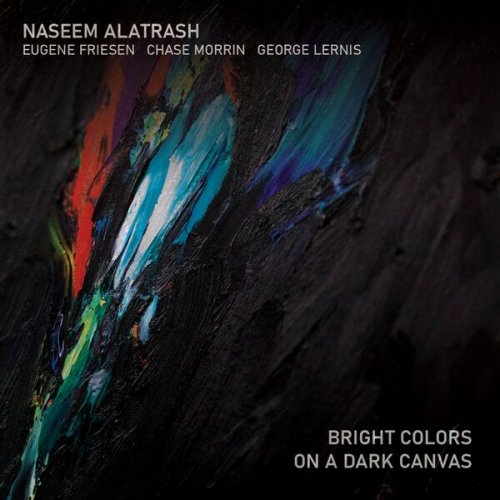

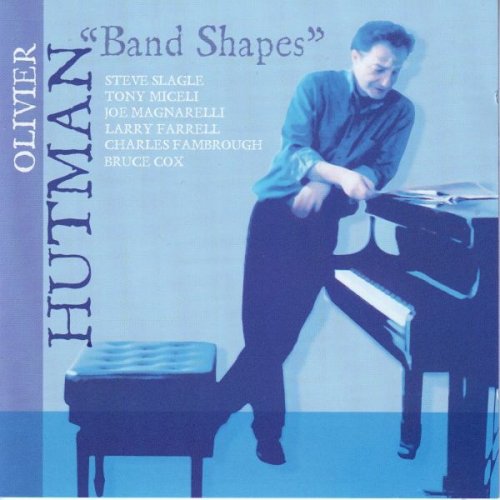


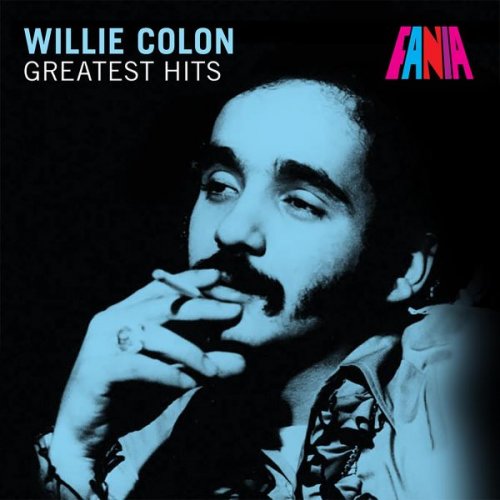
![Mehmet Ali Sanlikol - The Electric Oud Man Speaks and You Listen... (2026) [Hi-Res] Mehmet Ali Sanlikol - The Electric Oud Man Speaks and You Listen... (2026) [Hi-Res]](https://img.israbox.com/img/2026-02/28/0areq907i6p8nj96306jai1a0.jpg)
